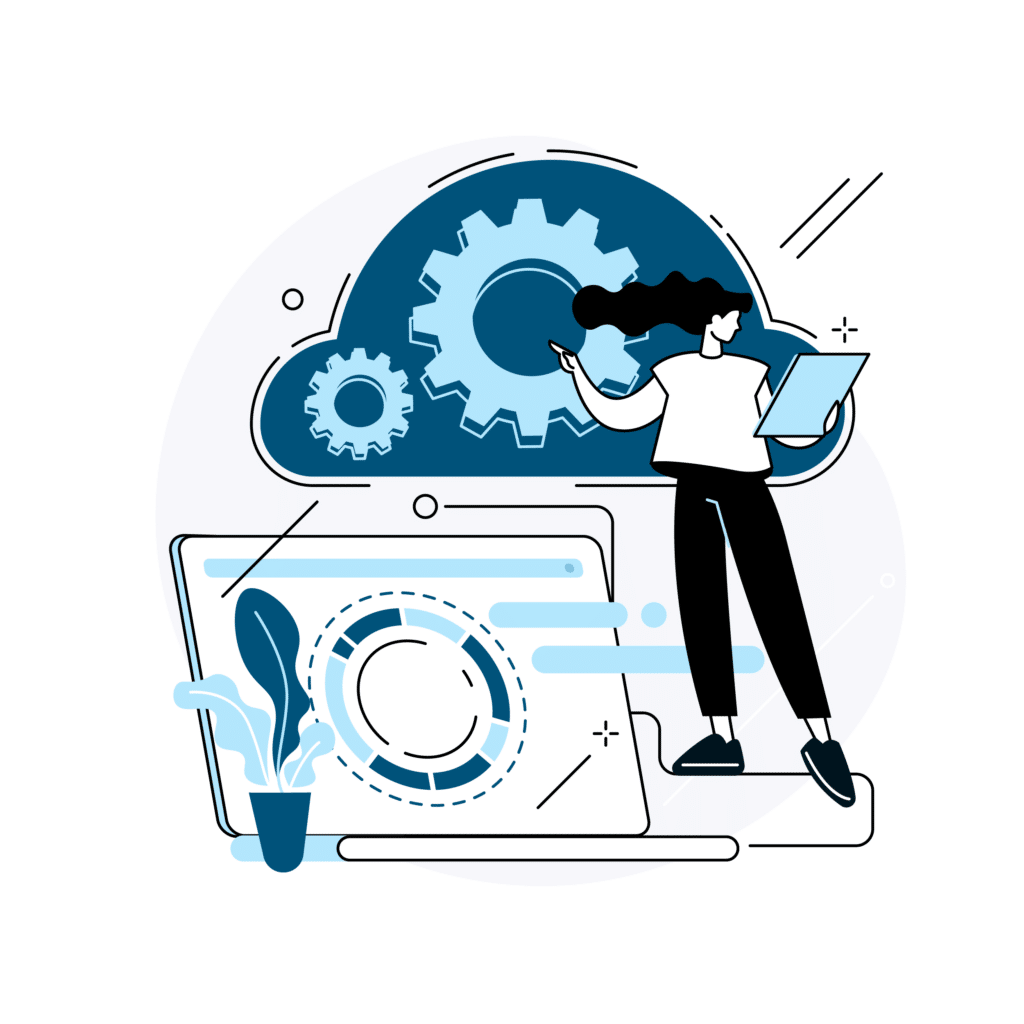Every year, the leading technological research and consulting firm Gartner releases its top strategic technology trends. Many expect these trends to influence decisions and strategies in business, technology, and digital transformation. In this article, we’ll discuss Gartner’s top trends for 2024. We will also take a more in-depth look at platform engineering, a trend that boosts business value, reduces cognitive loads, and enables developers and organizations to run, develop, and manage their own applications and processes.
1. AI TRiSM
AI TRiSM, which stands for AI Trust, Risk, and Security Management, supports AI model governance, fairness, reliability, robustness, transparency, and data protection. It achieves this by integrating content anomaly detection, data protection, application security, model management, and adversarial resistance.
What are the results of this strategic approach? Improved model precision and consistency, as well as enhanced bias control in decisions and increased fairness in AI-driven applications. By 2026, enterprises implementing TRiSM controls on AI applications are expected to significantly boost their decision-making accuracy by eliminating 80% of faulty and illegitimate information.
2. Continuous threat exposure management
Continuous Threat Exposure Management (CTEM) offers a pragmatic and systemic approach to cybersecurity optimization. Importantly, CTEM strikes an excellent balance between diagnosis and action, encompassing scoping, discovery, prioritization (identifying which threats matter most), validation, and mobilization (taking the proper measures to battle a threat or minimize its impact).
Moreover, this comprehensive approach to security aligns exposure assessment cycles with specific business projects or critical threat vectors. It addresses both patchable and unpatchable exposures and facilitates evidence-based security optimizations.
3. Sustainable technology
Sustainability is a top priority for most modern organizations. Consequently, sustainable technologies can aid in meeting environmental, social, and governmental (ESG) improvement goals that support long-term ecological balance and human rights. Furthermore, Gartner expects that an increasing number of organizations will select technologies that drive sustainability in their industry and are identified as a priority for the business and key stakeholders. By 2027, 25% of CIOs will have compensation linked to their sustainable technology impact, according to Gartner.
4. Platform engineering
Platform engineering stands out as another top trend for 2024 and beyond. Gartner predicts that by 2026, about 80% of software engineering organizations will establish platform teams to serve as internal providers of reusable services, components, and tools for application delivery. Well-designed platforms can offer customers and business partners a seamless self-service experience, enabling users to perform valuable work with minimal overhead.
The benefits of proper platform engineering are numerous. This practice reduces cognitive load, enhances the developer experience and productivity, and grants users greater independence through advanced self-service options. Building platforms with reusable, composable, and configurable components, knowledge, and services also increases your organization’s flexibility and adaptability.

5. AI-augmented development
Advanced AI technologies, including generative AI and machine learning, are becoming increasingly vital in the process of creating, testing, and delivering applications and platforms. Gartner predicts that by 2028, about 75% of enterprise software engineers will use AI coding assistants.
Moreover, AI-augmented development tools let you translate legacy code into modern languages, enable design-to-code transformation, and enhance application testing capabilities. Additionally, they boost developer productivity by reducing time spent on coding, allowing developers to focus on higher-level activities. Furthermore, these tools empower development teams to meet the growing demand for business-critical software solutions.
6. Industry cloud platforms
Industry cloud platforms (ICPs) provide tailored cloud solutions specific to your industry, offering the composability that modern organizations need to respond to accelerating disruptions. By 2027, over 50% of enterprises will likely adopt industry cloud platforms to accelerate their business initiatives, a significant increase from less than 15% in 2023.
7. Intelligent applications
Intelligence is rapidly becoming a foundational capacity for modern applications. Intelligent, mostly AI-augmented applications are an important trend because they allow organizations to better automate and augment work across an incredibly broad range of use cases. Transforming the experience of users, customers, and product owners, adding accurate predictions and recommendations, and advancing data-driven decision-making: intelligent apps make it possible.
8. Democratized generative AI
Democratized generative AI is another major trend, mainly because the widespread availability of generative AI is bound to democratize access to information and skills. Vast sources of information – both internal and external – can be made accessible and available to business users via natural language conversational interfaces, allowing organizations to boost productivity, reduce costs, and create and utilize new growth opportunities.
Gartner expects that by 2026, more than 80% of enterprises will have used generative AI APIs, models, and/or deployed generative AI-enabled applications in production environments, an increase from fewer than 5% today.
9. Augmented connected workforce
The ninth trend on our list is the augmented connected workforce. This strategy allows you to optimize human performance by establishing a connective tissue that optimizes the use of intelligent technology. Augmented connected workforces enable you to work smarter and tackle complex issues through smart workplace automation. “Through 2027, 25% of CIOs will use augmented connected workforce initiatives to reduce time to competency by 50% for key roles”, says Gartner.
10. Machine customers
The last trend on Gartner’s list is both an interesting and disruptive one. For the first time in history, companies will be able to ‘make’ their customers. Connected products (approximately 28 billion in 2028) have the potential to behave as customers and will impact trillions of dollars in purchases by 2030. In the long run, machine customers might render 20% of human-readable digital storefronts obsolete.
Driving Efficiency with Be Informed in Platform Engineering
Platform engineering is crucial as it speeds up application delivery and enhances their business value. Recognizing this, Be Informed created a model-based intelligent automation platform.
It uses declarative models and advanced inferences for automating decisions, supporting decision-makers, and generating context-specific processes. This model-driven approach speeds up development, reduces labor, and enhances scalability through robust integration solutions. It is designed to handle complex tasks and is continuously improved for better development and user experiences.










